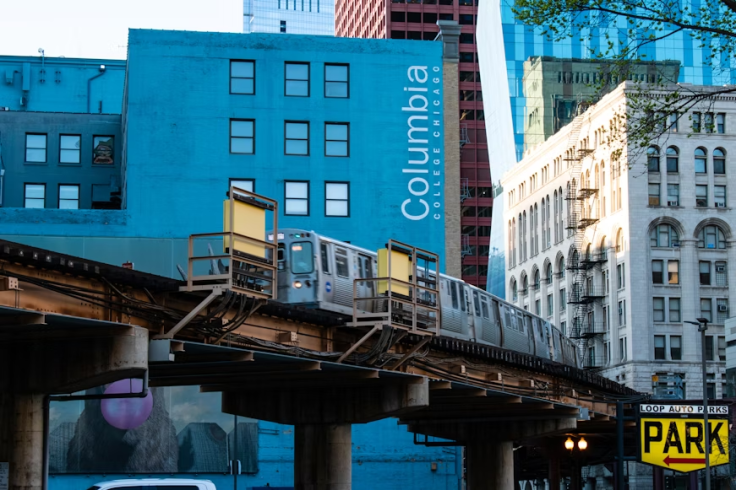Columbia College Chicago President Kwang-Wu Kim Resigns Amid Faculty Tensions and Budget Challenges
ByKwang-Wu Kim's departure from his role as president and CEO of Columbia College Chicago marks a critical juncture for the institution as it grapples with internal strife and financial challenges. The historic seven-week strike by contingent faculty members, a culmination of long-standing grievances, has left a lasting impact on the college's stability and reputation. The fallout from the strike, combined with the broader economic ramifications of the COVID-19 pandemic, has heightened the urgency for Columbia College Chicago to address both its internal dynamics and financial sustainability.

The recent strike, concluded just two months ago, was a visible manifestation of discontent among faculty members regarding issues such as working conditions and compensation. The financial toll of the strike, estimated at $13 million, has brought the college's fiscal health into sharp focus. In this context, Kwang-Wu Kim's decision to step down signifies an acknowledgment of the need for fresh leadership to navigate these complex challenges effectively.
Financial Strain and Enrollment Declines
Columbia College Chicago faces a multifaceted financial predicament, amplified by a decline in student enrollment in recent years. According to the Department of Education's Integrated Postsecondary Education Data System, the college's enrollment has seen a gradual decrease, slipping from nearly 7,000 in fall 2019 to its current enrollment of around 6,700 students. This downward trend is part of a more extended decline, with federal data indicating that the college enrolled over 10,000 students in fall 2013, a threshold it has struggled to reach since.
The financial strain resulting from decreased enrollments has been further exacerbated by the economic fallout from the COVID-19 pandemic, which has disrupted traditional higher education models. The need to adapt to changing dynamics in student preferences, educational delivery methods, and financial pressures has become a paramount concern for the college's leadership.
Anticipating Organizational Changes
As Columbia College Chicago prepares for a transition in leadership, stakeholders are keenly anticipating the details of the organizational restructuring plan set to be unveiled by Kim in his draft report on February 28. This plan is expected to encompass a comprehensive review of the college's administrative functions, academic programs, and resource allocation. The overarching goal is to identify efficiencies and streamline operations while safeguarding the quality of education and the student experience.
The restructuring process presents an opportunity for the college to redefine its strategic priorities, reallocate resources judiciously, and foster a more resilient and adaptable organizational culture. By engaging in a transparent and inclusive dialogue with stakeholders, the administration can garner support for these changes and ensure that the diverse perspectives of the college community are considered in the decision-making process.
Charting a Path Forward with Stakeholder Engagement
Amidst the challenges and uncertainties, Columbia College Chicago must prioritize open communication and collaboration with faculty, staff, students, alumni, and other key stakeholders. Creating a shared vision for the college's future requires active engagement and participation from the entire community. The forthcoming draft report and subsequent discussions will serve as critical forums for stakeholders to express their concerns, aspirations, and recommendations.
Maintaining a commitment to the college's core mission and values will be paramount in guiding the restructuring efforts. Columbia College Chicago's legacy of fostering creativity, innovation, and diversity must remain at the forefront of decision-making processes. By embracing the collective expertise and passion of its community, the college can forge a path forward that aligns with its founding principles while adapting to the evolving landscape of higher education.
In navigating this transformative journey, strong leadership, strategic vision, and a dedication to excellence will be essential. Columbia College Chicago has an opportunity to emerge from this period of transition stronger and more resilient, poised to thrive in the dynamic and ever-evolving higher education landscape.
© 2026 University Herald, All rights reserved. Do not reproduce without permission.








